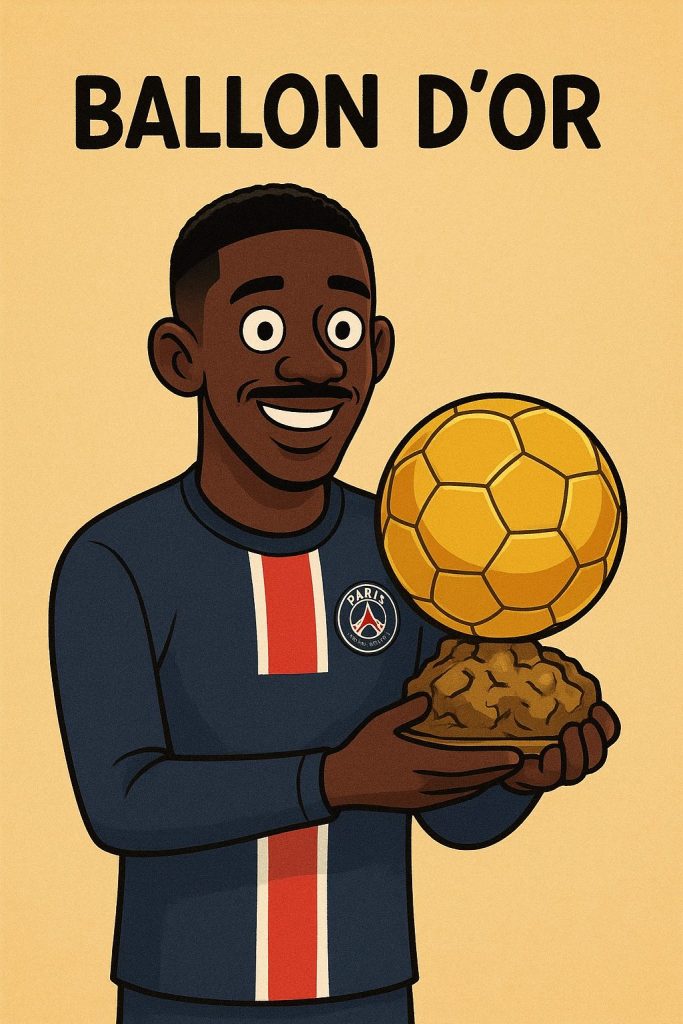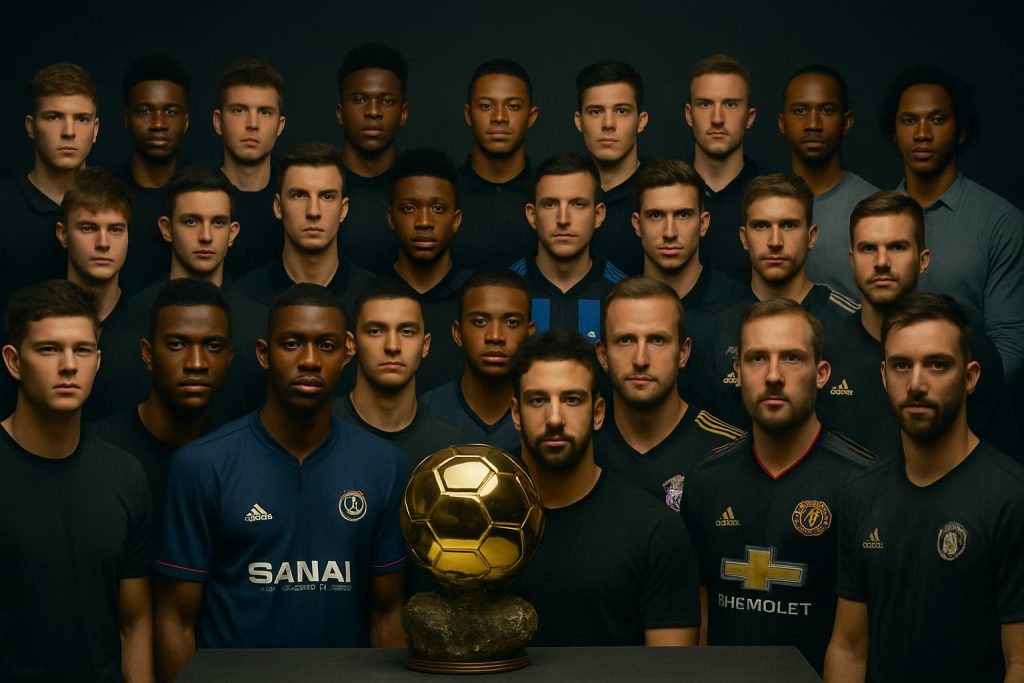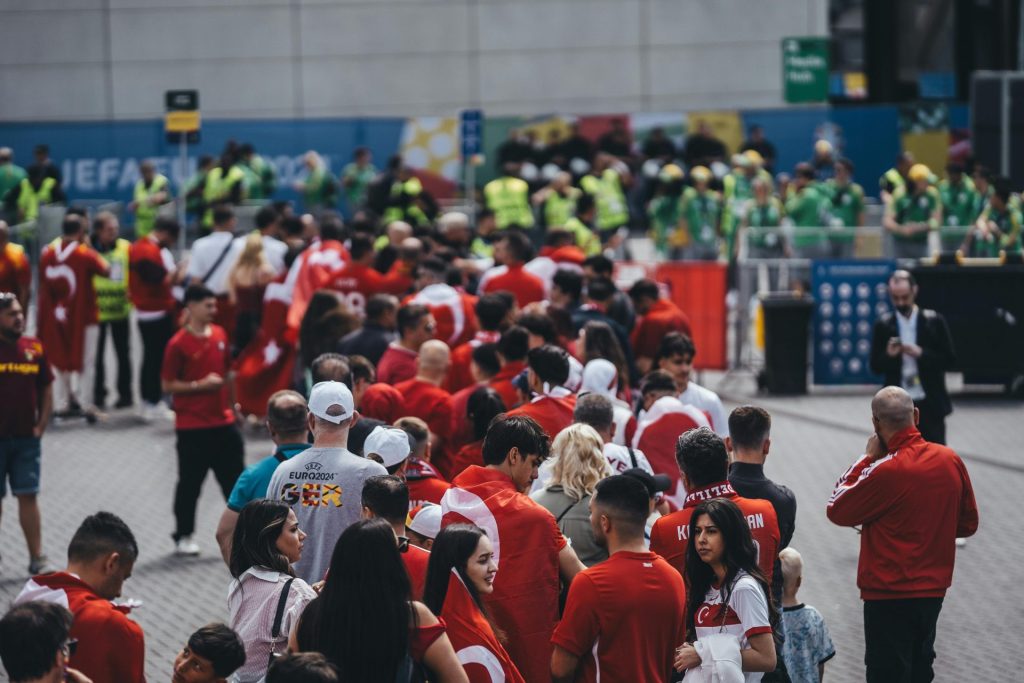The Ballon d’Or, awarded annually by France Football, is widely regarded as the most prestigious individual honor in world football. Since 1956, it has crowned legends such as Alfredo Di Stéfano, Johan Cruyff, Michel Platini, Lionel Messi, and Cristiano Ronaldo.
The 2025 edition, held on September 22, 2025 at the Théâtre du Châtelet in Paris, was the fourth time the award was based on a single club season (August 2024 – July 2025) instead of the calendar year. This change reflects the modern football calendar and aligns the award more closely with domestic leagues, continental competitions, and international tournaments.
What makes 2025 historic is not just the winners themselves, but the shifting dynamics of football: new stars rising, veterans fading, and the balance between men’s and women’s football becoming more equal in recognition.
Men’s Ballon d’Or: Ousmane Dembélé’s Moment of Glory
The Winner
- 🏆 Winner: Ousmane Dembélé (France, Paris Saint-Germain)
- 🥈 Runner-up: Lamine Yamal (Spain, FC Barcelona)
- 🥉 Third place: Vitinha (Portugal, PSG)
After years of being considered an inconsistent talent plagued by injuries, Ousmane Dembélé finally fulfilled his potential. The French winger delivered a sensational 2024/25 campaign with Paris Saint-Germain, leading them to domestic dominance and a deep run in the UEFA Champions League.
Dembélé’s mix of electrifying dribbling, key goals, and decisive assists put him above teenage sensation Lamine Yamal and midfield orchestrator Vitinha in the final rankings. For many, this was not only a personal redemption story but also a symbolic victory for PSG, who were crowned Club of the Year at the same ceremony.
Why Dembélé Won
- Consistency: For the first time in his career, Dembélé stayed fit for an entire season and became PSG’s attacking leader.
- Team success: PSG’s collective strength, guided by coach Luis Enrique (who won the Johan Cruyff Trophy for Best Coach), helped elevate Dembélé’s profile.
- Impact in big games: He stepped up in crucial Ligue 1 matches and in Europe, producing match-winning performances.
Still, his win was not without debate. Critics argued that Lamine Yamal, at just 18, delivered an equally spectacular season at Barcelona. Others pointed to Kylian Mbappé and Erling Haaland, whose names have dominated recent years, and questioned whether Dembélé’s win was partly driven by narrative and timing.
Women’s Ballon d’Or: Aitana Bonmatí’s Historic Third Crown
On the women’s side, history was made:
- 🏆 Winner: Aitana Bonmatí (Spain, FC Barcelona)
- 🥈 Runner-up: Alexandra Popp (Germany, Wolfsburg)
- 🥉 Third place: Debinha (Brazil, Kansas City Current)
Aitana Bonmatí lifted her third consecutive Ballon d’Or Féminin, cementing her place as one of the greatest midfielders in history. Her blend of vision, intelligence, and technical mastery drove FC Barcelona Femení to another dominant season and Spain’s national team to glory.
Her win signals the ongoing evolution of women’s football: consistent recognition, global media coverage, and a shift where female players are becoming household names across continents.
Other Major Awards
Beyond the two main Ballon d’Or prizes, the Paris gala also celebrated different aspects of the game:
- Kopa Trophy (Best Young Player under 21): Lamine Yamal (Spain, FC Barcelona)
- Yashin Trophy (Best Goalkeeper): Gianluigi Donnarumma (Italy, PSG)
- Gerd Müller Trophy (Top Scorer): Viktor Gyökeres (Sweden, Sporting CP)
- Johan Cruyff Trophy (Best Coach): Luis Enrique (PSG, men’s) and Jonatan Giráldez (Barcelona, women’s)
- Club of the Year: Paris Saint-Germain (men’s) & FC Barcelona Femení (women’s)
- Sócrates Award (Social Initiative): Xana Foundation
These awards underline that football is more than just individual brilliance — it celebrates youth, goal-scoring, leadership, coaching, and social impact.
Analysis: The Bigger Picture
1. A New Face for France
For France, Dembélé’s win represents a changing of the guard. After years of Mbappé being tipped as the nation’s natural Ballon d’Or heir, it is instead his PSG teammate who claims the crown. Whether this sparks rivalry or unity in Les Bleus ahead of the 2026 World Cup remains to be seen.
2. The Rise of the New Generation
Lamine Yamal’s runner-up finish and Kopa Trophy victory confirm his status as football’s next megastar. At 18, he is already outshining veterans who dominated the sport for the past decade. The “post-Messi, post-Ronaldo” era is no longer coming — it has arrived.
3. Women’s Football on Equal Footing
Bonmatí’s third win is not just a personal achievement but a symbol of how women’s football is being celebrated on the same stage as men’s. Barcelona’s dominance at club level mirrors PSG’s rise in the men’s game, reinforcing the idea that Spain is at the heart of both men’s and women’s football evolution.
4. Narrative vs. Numbers
The 2025 Ballon d’Or highlighted an old debate:
- Should the award go to the player with the best statistics?
- Or the player with the greatest influence on their team’s success?
Dembélé was not the top scorer or assist-maker in Europe, but his influence in PSG’s victories convinced voters. Some argue that if pure numbers were the only measure, Gyökeres or Haaland would have ranked higher.
Looking Ahead: Ballon d’Or 2026
The 2026 edition promises to be even more competitive. Key storylines include:
- Lamine Yamal: Will the teenager become the youngest ever Ballon d’Or winner?
- Mbappé vs. Haaland: Both remain hungry to reclaim the spotlight.
- Bonmatí’s dynasty: Can she extend her dominance to four titles?
- International stage: With the 2026 FIFA World Cup approaching, performances on the biggest stage will heavily influence next year’s vote.
Conclusion
The 2025 Ballon d’Or was a milestone moment:
- Ousmane Dembélé finally realized his long-awaited potential.
- Aitana Bonmatí established herself as one of the all-time greats.
- Young stars like Lamine Yamal showed that the future belongs to them.
More than a ceremony, the event in Paris reflected the current state of football: a sport where tradition meets transition, where men and women share the spotlight, and where the next generation is ready to redefine greatness.
- The 2025 Ballon d’Or: A New Era of Football Greatness - October 3, 2025
- Ballon d’Or 2025: Meet the 30 Men’s Nominees - August 7, 2025
- World Cup Qualifiers Explained – How Each Continent Competes for a Spot at the World Cup - June 10, 2025


